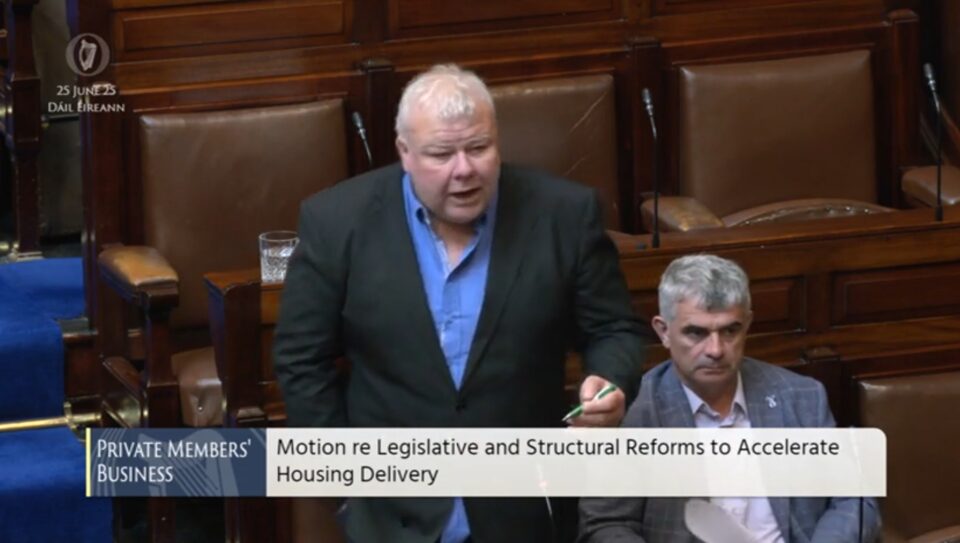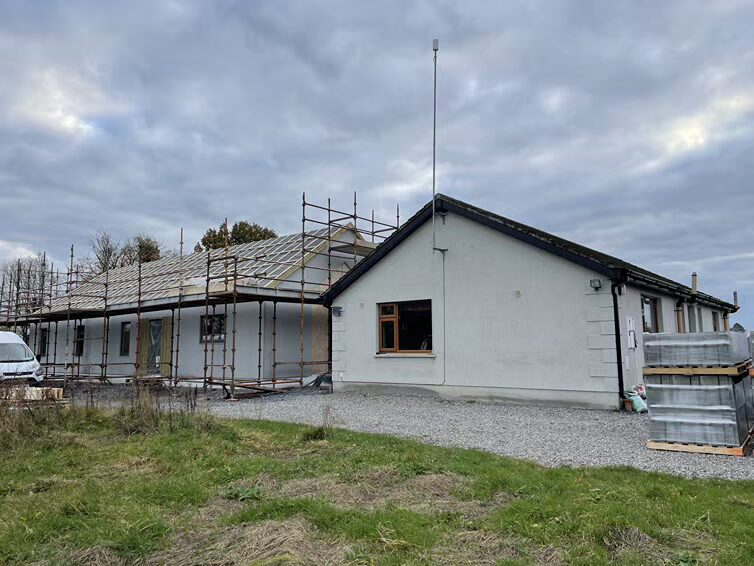In this article we cover:
- Couple’s construction of a home far larger than originally permitted.
- Repeated failure to comply with court orders to vacate the property.
- A 2020 settlement agreement and subsequent legal challenge.
- Couple’s claim of new evidence regarding land sterilisation agreements.
- The High Court’s dismissal of their case as “frivolous and vexatious.”
A couple’s attempt to prevent the demolition of their family home – constructed without planning permission nearly 18 years ago – has been dismissed by the High Court as “frivolous and vexatious”, reports the Irish Times.
Chris Murray, a plumber, and his wife, Rose, brought fresh legal proceedings despite previously agreeing to vacate their 588sqm property in Co Meath, to allow for its demolition in September 2022.
The couple argued that new evidence had emerged, which they claimed warranted setting aside earlier court orders requiring them to leave the property. However, Mr Justice Conor Dignam rejected their case, agreeing with Meath County Council that it constituted an abuse of process.
The court heard that the Murrays had been refused planning permission for a dormer bungalow in 2006, but proceeded to build a significantly larger house than was initially proposed.
In 2007, the council issued a notice regarding the unauthorised development, prompting the couple to seek retrospective permission.
Both the council and An Bord Pleanála rejected this, as well as a subsequent application to partially demolish and retain parts of the property, over fears it “would establish an undesirable precedent for further development of this kind.”
In 2017, the Supreme Court upheld High Court orders requiring the removal of unauthorised development and instructed the Murrays to vacate within a year, criticising the “deliberate breach of planning laws.” When the couple failed to comply, the council initiated contempt proceedings.
A settlement agreement was reached in 2020, where the couple consented to vacate the property within two years. However, three days before the deadline expired, they launched new proceedings seeking to pause the enforcement orders.
The Murrays claimed that fresh evidence regarding land sterilisation agreements by previous owners invalidated the original planning refusals. They also referred to a recent High Court ruling that they believed supported their case.
Mr Justice Dignam dismissed these arguments, stating that judicial reviews of planning decisions must be brought within eight weeks of the decision unless exceptional circumstances, such as fraud or deliberate concealment, are proven. He said no such evidence was presented.
The judge confirmed that the couple’s claims were “vexatious and frivolous” and noted that Meath County Council had already rejected subsequent planning applications made by the Murrays.




















